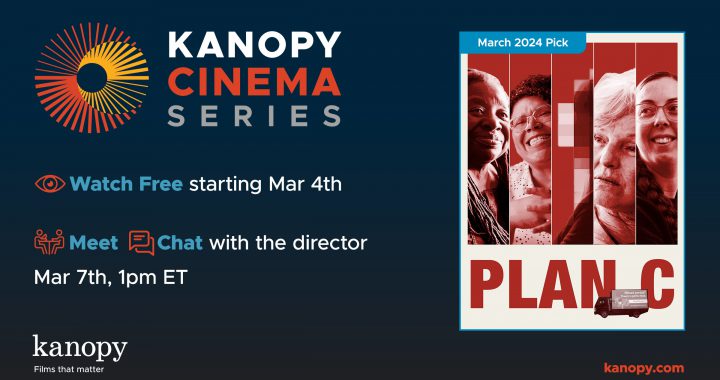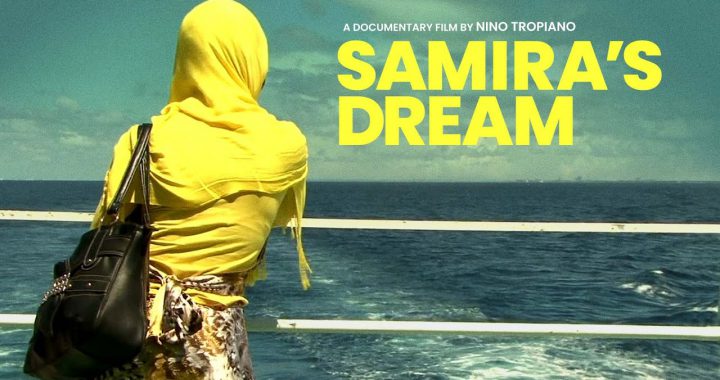As we come into spring, it’s delightful to see the growing green and budding blossoms that begin to reappear throughout the DC area. If nature intrigues you or you just want to spend a little more time out of the house while the weather gets warm, look no further than DCEFF’s 32nd annual environmental film […]
Continue readingTag Archives: documentary
Introducing the Food Films Media Collection!
If you’re interested in finding a new favorite, mouthwatering film, then you’ve come to the right place! One of the many offerings AU Library Media Services has to provide is our extensive group of curated media collections. From recent acquisitions to African American cinema to war films, our collections showcase a wide scope of interesting […]
Continue readingKanopy Cinema Series and Upcoming Event!
One of the many resources available to faculty and students through the American University library is Kanopy, a streaming video platform primarily for educational and academic content. Kanopy offers a rotating collection of media with access to over 10,000 titles and it’s completely free to use with your AU library account! One of Kanopy’s newest […]
Continue readingJailed Russian opposition politician, Alexei Navalny dead
News sources are reporting today that jailed Putin critic, Alexei Navalny, has died in prison. On 20 August 2020, Navalny was poisoned with a Novichok nerve agent. In 2021 he was imprisoned on charges which were widely seen as politically motivated.
For background, checkout the Academy Award winning documentary, Navalny, streaming from the library catalog.
Continue readingIntroducing the LGBTQ+ Media Collection!
One of the many offerings AU Library Media Services has to provide is our extensive group of curated media collections! From recent acquisitions to animation to musicals, our collections showcase a range of interesting movie categories. The most recent one we’ve added to our Home Use Collection Highlights page is LGBTQ+ films. This collection offers […]
Continue readingTransgender Awareness Week and Transgender Day of Remembrance
This year and every year, Transgender Awareness Week goes from November 13th to November 19th and culminates with Transgender Day of Remembrance on November 20th. In 1999, transgender advocate Gwendolyn Ann Smith founded Transgender Day of Remembrance to honor the loss of a transgender woman named Rita Hester in 1998. Since then, November 20th has […]
Continue readingNew Acquisition and Review!
Samira’s Dream / DVD 17357 Samira is a young Zanzibari woman living in Zanzibar, Tanzania. While balancing her responsibilities as caretaker of her younger siblings, working at a local resort, and doing everyday domestic chores, Samira prioritizes her education. “My dream is to raise my own family and have an education and be independent at […]
Continue readingMovies At Random: Nanking
Today’s movie at random is the documentary Nanking (HU DVD 4367), which won a 2008 Peabody award. This well-regarded anti-war film is one of many crucial documentaries in our collection. The use of film storytelling to document, witness, and communicate plays such an important role in our history. It’s definitely worth checking out. Here’s our […]
Continue readingMovies At Random: Before the Nickelodeon
Yay Monday! The last Movie At Random of July is Before the Nickelodeon: the early cinema of Edwin S. Porter (HU DVD 13148). Here’s our summary: Between the years 1894 to 1908, Edwin S. Porter was the leading American filmmaker. Follows his movie career, from his first job installing Thomas Edison’s Vitascope machines in New […]
Continue readingMovies At Random: Sound And Fury
Today’s movie at random is Sound and Fury (HU DVD 681), an important documentary about deaf culture and the impact of cochlear implants. We also have streaming access to the follow up film, Sound and Fury: 6 years later. DC has such an interesting deaf community, and while this documentary is a little outdated, it’s […]
Continue reading






